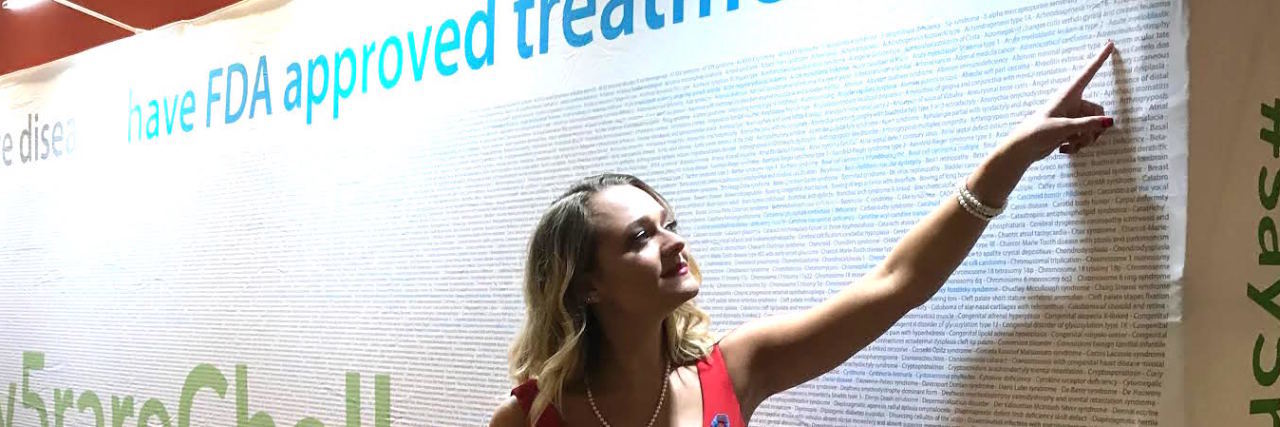What It's Like to Carry the Rare Disease That Took My Father's Life
When I was 5 years old, my dad passed away from a rare, deadly genetic disorder called adrenoleukodystrophy (ALD). This condition primarily affects males and results in severe neurological impairment, ultimately resulting in death unless diagnosed and treated before symptoms develop. ALD affects people differently, but in my dad’s case, he lost his ability to talk, walk, swallow, and understand what was going on around him. Some males with ALD also experience vision and hearing loss.
ALD is an X-linked disorder which means it manifests on the X chromosome. Since males (XY) only have one X chromosome and women (XX) have two, my father unavoidably passed the ALD gene to me, making me a carrier of the disease. ALD is known to be a recessive disorder, which typically means that carriers are completely asymptomatic. However, for ALD and a number of other X-linked, recessive genetic disorders, it has been determined that carriers often do develop symptoms of the disease, ranging from mild to severe. In fact, with ALD, recent studies have shown that over 85 percent of female carriers eventually develop symptoms, which can include difficulty walking, bladder and bowel dysfunction, and even cognitive impairment. There has not been sufficient medical research or attention with regard to the physical symptoms developed by X-linked carriers or their treatment, and in many cases the symptoms female carriers face are overlooked or misdiagnosed by the medical profession. Thus, many carriers themselves have no idea their symptoms are related to the disease they carry.
As a passionate feminist, I am well aware of the fact that males have traditionally come first when it comes to research and medical treatment. Our symptoms oftentimes get brushed off as PMS or anxiety. To me, the most nerve-wracking part about being an ALD carrier is the fact that there are no known measures I can take to prevent these symptoms or treat them if or when they arrive.
In addition to physical symptoms, female carriers have very little support with regard to difficult decisions they must make concerning their reproductive options. All X-linked recessive carriers have a 50 percent chance of passing the genetic mutation to their children. Since ALD is a progressive disease, if I decide to have children in the future, the route I will take to ensure I have healthy children is in vitro fertilization (IVF) with pre-implantation genetic diagnosis (PGD). This would allow me to have children who are completely free of the ALD genetic mutation. Unfortunately, many states do not require insurance companies to financially cover this procedure, and as it is extremely expensive, many female carriers are simply unable to afford it and are left with a very difficult decision: potentially having a child with a severe genetic disease or to give up their dream of having biological children.
Being a carrier of an X-linked disease can be incredibly isolating. However, I have been fortunate to meet and form relationships with so many brave carriers of ALD and other X-linked disorders, which has made me feel much less alone in this journey. It has also spurred me to take action. Last year, I created a 501(c)3 nonprofit organization called Remember the Girls, to raise awareness of the issues we face as carriers. I hope to continue to build Remember the Girls, and create a coalition which unites female carriers of X-linked genetic disorders and raises awareness of their unique and pressing issues. As carriers, we deserve to be seen. We deserve gender-specific research, and we deserve to be able to afford to have children without the fear of passing our disease on to them.
Although I am unsure of what else the future holds for me, one thing I know for sure is that I will spend the rest of my life advocating for carriers, rare disease patients, and their families.
For more information, visit the closed Facebook group, Remember the Girls or follow Taylor on Twitter and Instagram
This story originally appeared on The Sick Chicks

